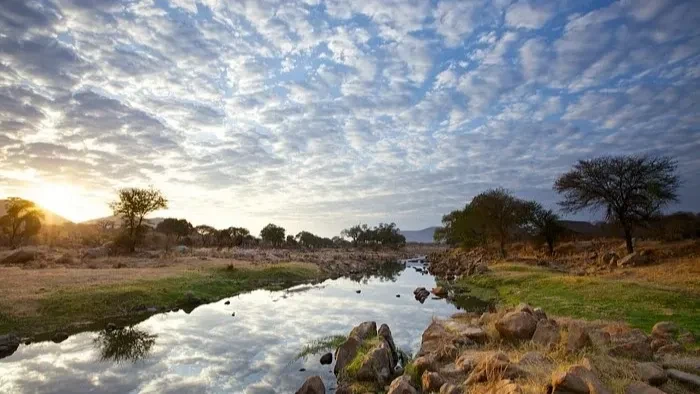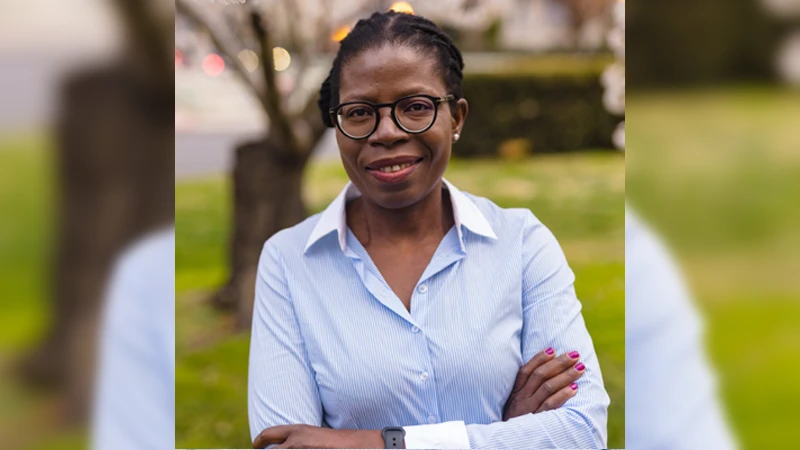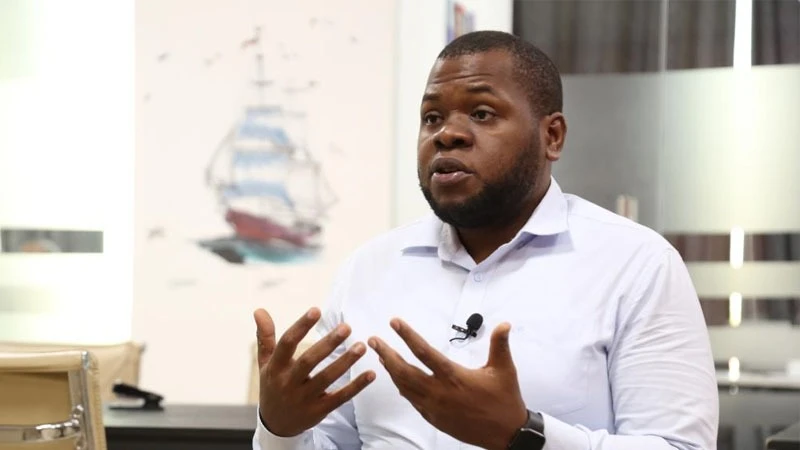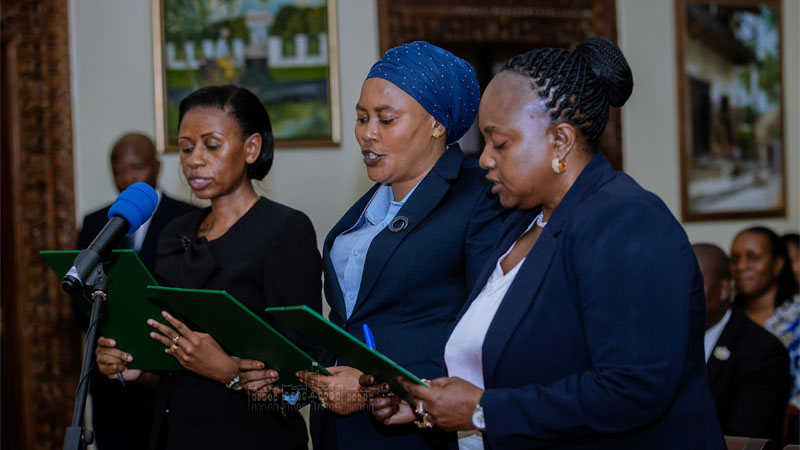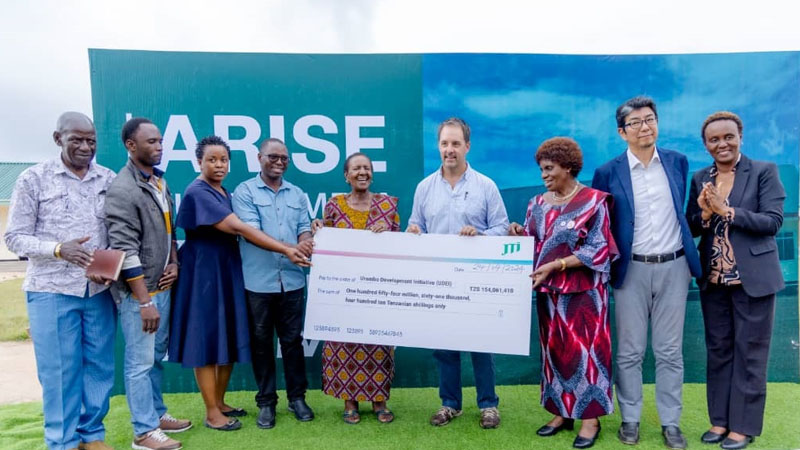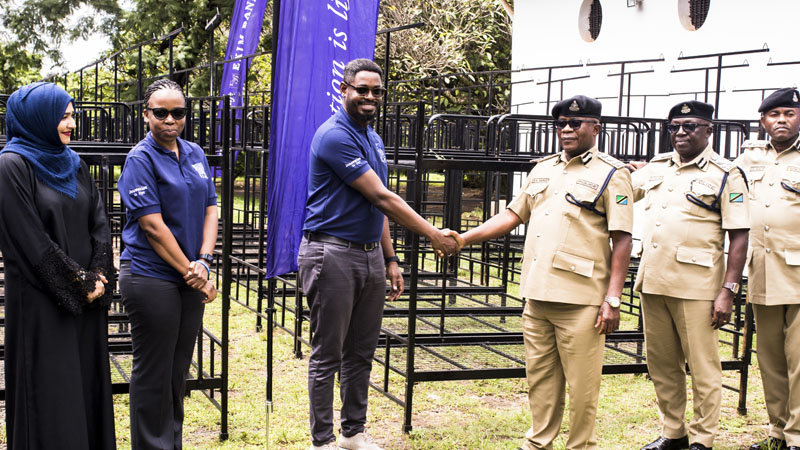China, Tanzania marking ties, ahead of Union Day
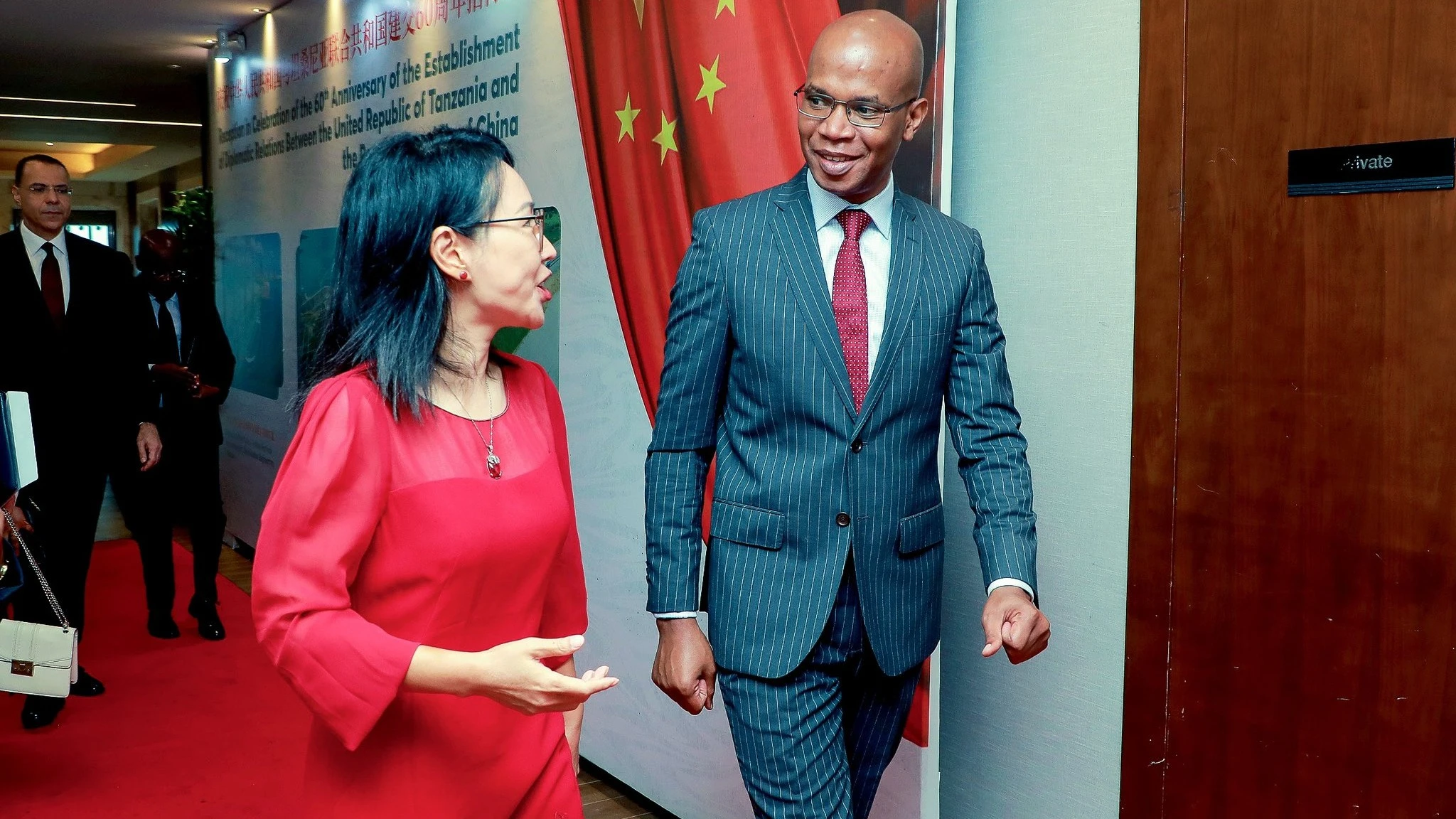
TANZANIA has pledged to strengthen ties with China as the two countries commemorate 60 years of establishing diplomatic relations.
January Makamba, the Foreign Affairs and East African Cooperation minister expressed this vow made this affirmation in Dar es Salaam yesterday after a meeting with Chinese ambassador Chen Mingjian.
“We have always been driven by mutual respect,’ he said, noting that this is a vital aspect of today’s world. “We shall always remain indebted to the fathers of our two nations and all those who have contributed to the brotherly relations, including past and current leaders,” Makamba said.
The founding fathers and visionary leaders, President Julius Nyerere, Sheikh Abeid Amani Karume and Chairman Mao Zedong built a solid foundation of the Tanzania-China friendship and solidarity.
Analysts all the same credit the relationship to Chinese influence on Zanzibar militants during the period leading to the January 12, 1964 revolution and the union three months later, April 26.
Chief among them was radical journalist Abdulrahman Babu, who led Beijing Radio’s Kiswahili programmes in the late 1950s, and his protégé Salim Ahmed Salim who was reaching adulthood in the 1960s under Babu’s influence, and through this link the ties with China were gradually built.
China and the former East Germany, known as the German Democratic Republic (GDR) were among the first countries around the world to recognise the Zanzibar Revolution, while Mwalimu Nyerere had a special relationship with its key leaders, Sheikh Karume and Sheikh Thabit Kombo, since February 1957, as president of TANU, he brought the two leaders to fuse their parties to create Afro-Shirazi Party, which was the ‘party of the revolution’ in Zanzibar, a name taken up when TANU and ASP fused late 1976, and CCM was formally declared on the same day as the ASP creation 20 years earlier, in 1977.
Mwalimu came closer to China when he had to switch to a clearer socialist outlook in mobilising nation building early in 1967, owing to threats of instability from disgruntled professional classes and foreign powers disliking both the Zanzibar Revolution and liberation movements that were gradually settling in Dar es Salaam,
China was the natural ally in this situation, and Mwalimu examined the Chinese system of socialist villages to see how it could be applied here, to varying levels of success. Other initiatives like the TAZARA railway ensued, and other ties.
The minister said that Tanzania is committed to support global and regional forums and initiatives put forward by the Chinese authorities such as the Forum on China-Africa Cooperation (FOCAC), the Belt and Road Initiative (BRI) and Global Development Initiatives (GDI).
“We approach the future with no doubt that with President Xi Jinping principles of sincerity, real results, amity and good faith, our relationship will strengthen further and deeper.”
More recently, President Samia Suluhu Hassan visited China two years ago, elevating ties to a comprehensive strategic partnership. Another meeting with President Xi occurred on the side lines of the BRICS summit in Johannesburg, last August.
Ambassador Chen said that China-Tanzania 2023 trade volumes exceeded $8.78bn, up by 5.7 percent on a year on year basis, making China the largest trading partner and source of investment in Tanzania for eight consecutive years.
China -Tanzania cooperation has long been leading when it comes to China-Africa cooperation, with China achieving fruitful results from the investment in Tanzania as it has always been a participant, enabler and beneficiary of the Forum on China-Africa Cooperation (FOCAC), she stated.
Zhang Junle, the China Civil Engineering Construction Corporation (CCECC) managing director, building the Kigongo-Busisi Bridge, pledged that the project will be completed before the year ends, with nearly 700bn/- disbursed.
Top Headlines
© 2024 IPPMEDIA.COM. ALL RIGHTS RESERVED




